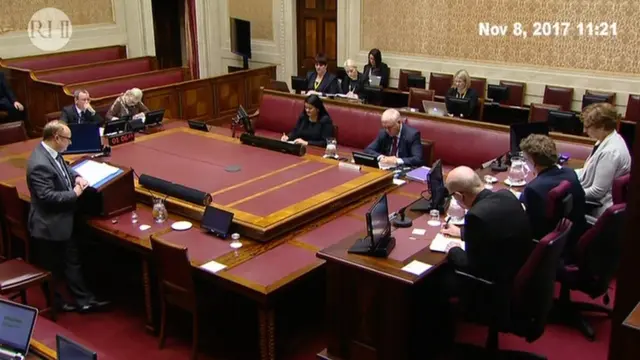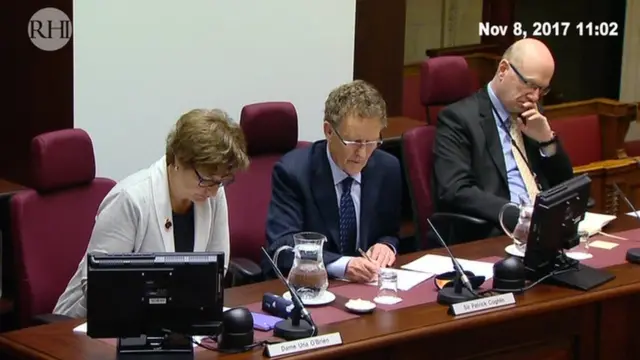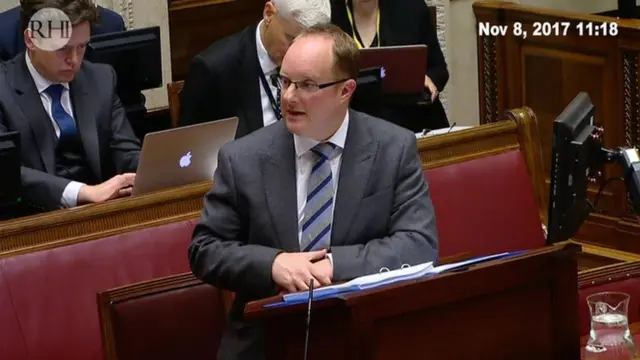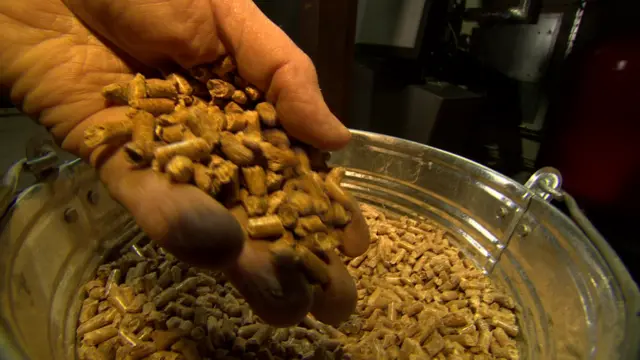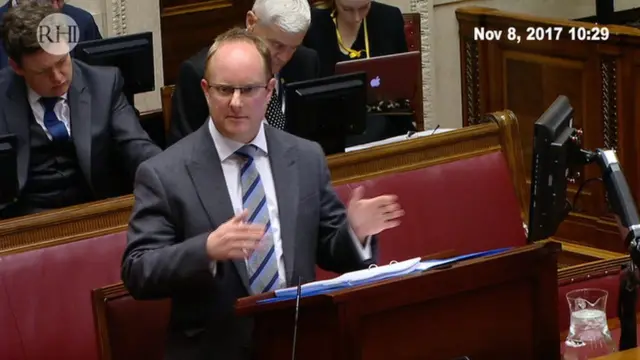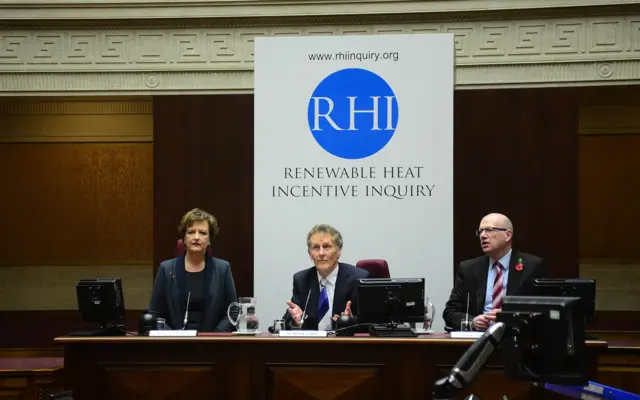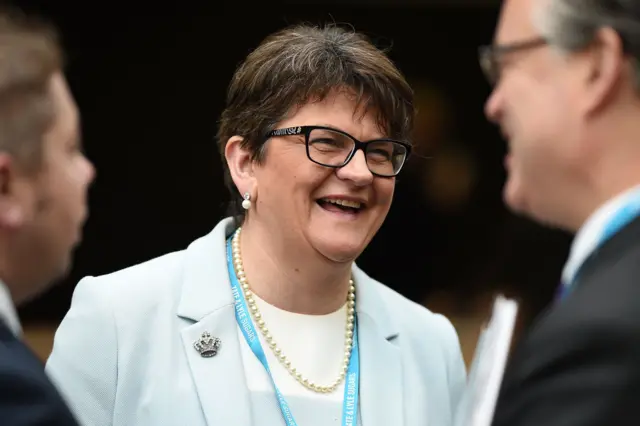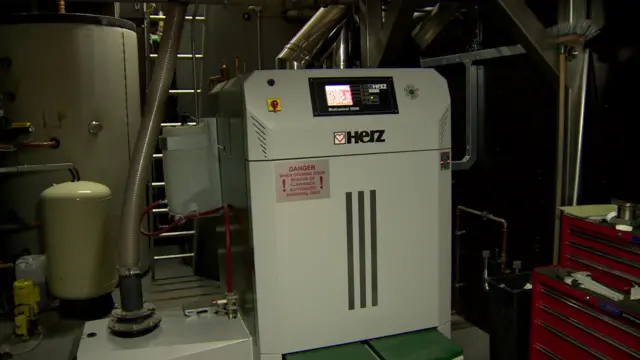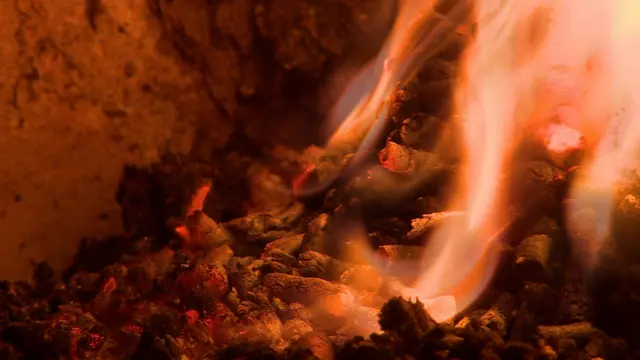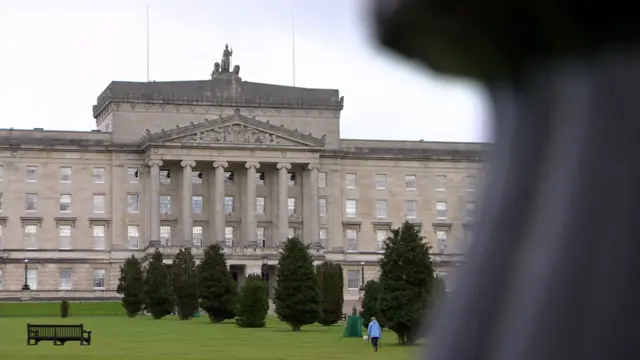'Foster wanted to proceed without amendments'published at 12:09 GMT 8 November 2017
Focus moves to the drafting of the regulations for the setting up of the RHI scheme in 2012.
Mr Scoffield says that Ofgem - the scheme's regulator - advised DETI that the amendments were being made to the Great Britain RHI scheme and that it should wait until those were in place before putting its own initiative in place.
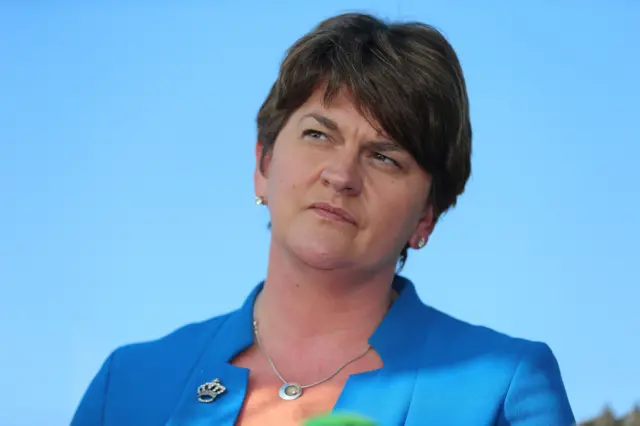 Image source, PA
Image source, PAOfgem said the Great Britain scheme amendments would "negate risks" that the draft Northern Ireland regulations posed.
But it said that DETI recorded "the minister's wish to proceed without waiting or having reviewed the amendments to the GB RHI scheme". That minister was Arlene Foster (above).
